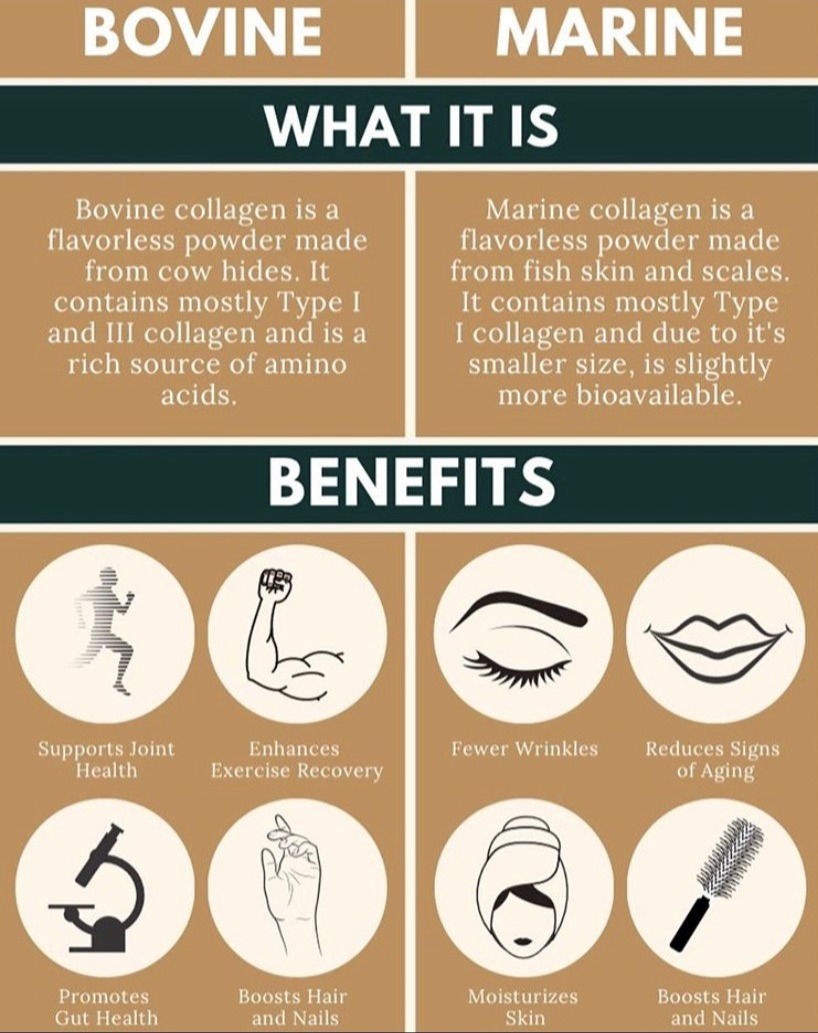Why take collagen supplements?
- Kelly (@gingercures)

- Apr 21, 2020
- 2 min read
Updated: Oct 19, 2020

Most people are surprised to learn that, after water, collagen is the second most plentiful substance in our bodies. Sadly, from our early 20’s, the body’s own natural production process of collagen declines (falling by 1.5% per year). This means by the time we’re 40 we are actually producing 25% less collagen.
This decline in collagen production can contribute to many of the symptoms we associate with aging, including achy joints, fine lines, thinning hair, digestion issues, and more.
Aside from aging, the top reason people do not have enough collagen is poor diet. Your body can not make collagen if it does not have the necessary elements.
MAKING COLLAGEN NATURALLY: When your body makes collagen, it combines amino acids — nutrients you get from eating protein-rich foods, like beef, chicken, fish, beans, eggs and dairy products. The process also requires vitamin C, zinc and copper. You can get vitamin C by eating citrus fruits, red and green peppers, tomatoes, broccoli and greens. You can get the minerals by eating meats, shellfish, nuts, whole grains and beans.
BEST COLLAGEN-BOOSTING FOOD: Bone Both (see my earlier post on how to make some!).
SUPPLEMENTS: In recent years, collagen supplements have become popular. Consuming collagen can have a variety of health benefits:
Retaining skin elasticity
Strengthening hair and nails
Promoting joint and bone health
Supporting digestive health
Boosting the immune system
Which collagen is right for you?
Grass-fed (bovine) collagen is made up of types 1 and 3 collagen. These are the two most plentiful types of collagen present in our bodies and can be found throughout our connective tissues. This makes grass-fed collagen great for overall health and recovery from injuries.
If your priority is to improve the health of your skin, hair and nails, then you should opt for marine collagen. Marine collagen is also known for being more bioavailable than other types of collagen.
Whether you choose bovine collagen or marine collagen, you really can’t go wrong. The deciding factor comes down to your personal preferences, dietary restrictions/allergies, and health concerns.
Extra Info on collagen types:
Collagen types contain different proteins which serve separate purposes within the body.
Types 1 & 3 can be taken together and may support skin, muscles, bone health, and hair and nail growth and maintenance.
Collagen Type 2 protein makes up the fluids and function in the cartilage and joints.
Type 2 collagen supplements should be taken separately from Types 1 & 3 to ensure adequate absorption, which is likely why these supplements don’t have it mixed in.
Over 90 percent of collagen in the body is comprised of Type 1 & 3 Collagen.





Comments